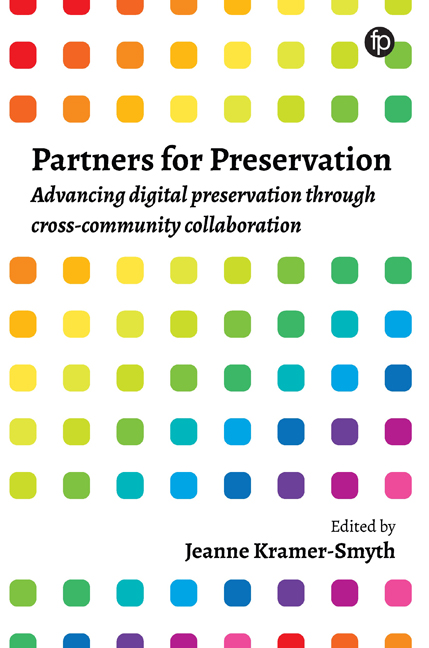Book contents
- Frontmatter
- dedication
- Contents
- List of figures and tables
- About the authors
- Foreword
- Introduction
- PART 1 MEMORY, PRIVACY AND TRANSPARENCY
- 1 The inheritance of digital media
- 2 Curbing the online assimilation of personal information
- 3 The rise of computer-assisted reporting: challenges and successes
- 4 Link rot, reference rot and the thorny problems of legal citation
- PART 2 THE PHYSICAL WORLD: OBJECTS, ART AND ARCHITECTURE
- PART 3 DATA AND PROGRAMMING
- Final thoughts
- Index
4 - Link rot, reference rot and the thorny problems of legal citation
from PART 1 - MEMORY, PRIVACY AND TRANSPARENCY
Published online by Cambridge University Press: 08 June 2019
- Frontmatter
- dedication
- Contents
- List of figures and tables
- About the authors
- Foreword
- Introduction
- PART 1 MEMORY, PRIVACY AND TRANSPARENCY
- 1 The inheritance of digital media
- 2 Curbing the online assimilation of personal information
- 3 The rise of computer-assisted reporting: challenges and successes
- 4 Link rot, reference rot and the thorny problems of legal citation
- PART 2 THE PHYSICAL WORLD: OBJECTS, ART AND ARCHITECTURE
- PART 3 DATA AND PROGRAMMING
- Final thoughts
- Index
Summary
Introduction
Preservation of digital information is important in all fields, but the nature of law and legal writing makes the preservation of digital information and the problem of link rot particularly significant. Legal writing is heavily dependent on citation in a way that is different from many other fields, and it is crucial that cited materials are accessible to future readers. The last 25 years has seen a migration of legal information from print to electronic, dramatically changing the way that lawyers research and access information (Berring, 2000a, 305–6). That same time frame has marked a rise in citation to more nontraditional sources made more accessible through digital search technologies (Margolis, 2011, 911–12). As the digital revolution has led to increasing citation to electronic sources, the ability to retrieve accurate versions of those sources has grown increasingly problematic. The dual problems of link rot (the URL is no longer available – there is no web content to display) and reference rot (URL is active but information referred to in the citation has changed, or the content of the page has changed) pose significant obstacles to lawyers trying to track down citations to internet sources (Zittrain, Albert and Lessig, 2014, 177). Practising lawyers, legal academics and law librarians have identified a variety of potential solutions to these problems, but none have been widely adopted. The legal field still has a long way to go to ensure the widespread retrievability of electronic citations.
Law and the nature of legal citation
While in many disciplines citation serves largely for the purpose of attribution, in practice-based and academic legal writing citation can play additional important roles. Legal citation practices often seem excessive to those outside the profession. Lawyers are active readers, trained to look for support for even the smallest points and to view citation with a critical eye, checking carefully for the degree of support a cited source provides for the cited proposition. In addition to providing support, a citation can carry a substantive message to the reader about the weight and significance of a legal authority in dictating the outcome of a new situation. Legal readers expect sources, called ‘authority’ in legal writing, for even the simplest proposition. Thus, the norms of academic and practice-based writing call for detailed citation to sources.
- Type
- Chapter
- Information
- Partners for PreservationAdvancing Digital Preservation through Cross-Community Collaboration, pp. 61 - 78Publisher: FacetPrint publication year: 2018



